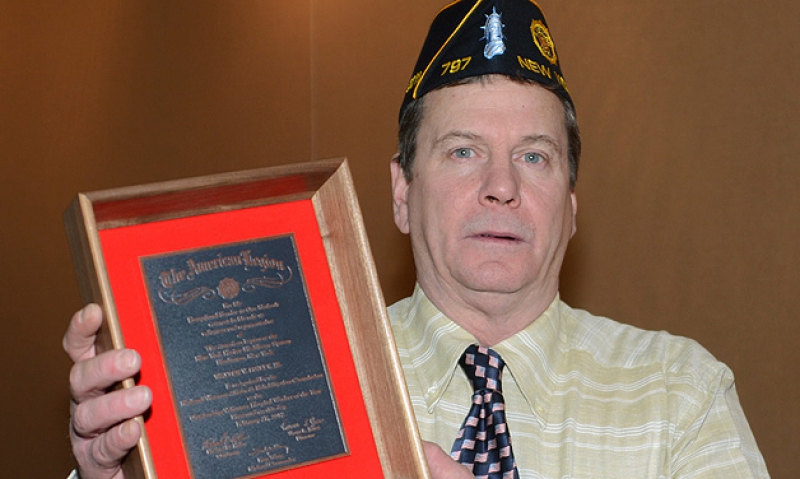
VAVS Worker of the Year gets up at 4 a.m. five days a week to help his fellow veterans at New York Harbor Healthcare System.
In a little more than a year, Legionnaire Walter V. Finley has donated more than 3,100 hours of his time to helping veterans in the in the Department of Veterans Affairs New York Harbor Healthcare System. A Navy veteran, Finley volunteers at the psychosocial clubhouse, working alongside Psychology Tech Patricia Johnson.
Finley was named The American Legion’s VA Volunteer Services Worker of the Year during the Washington Conference on Feb. 27. On the New York Harbor Healthcare System’s Web page, Johnson praised Finley for his work at the clubhouse.
“I can’t put it all into a single sentence," said Johnson, who oversees the clubhouse. “He’s always there with ideas, offering a lending hand and he gets it done. The big thing is that he anticipates what needs to be done. I’m so grateful.”
Finley also was praised by Dr. Marion Elkin, director of Outpatient Mental Health Services in the New York Harbor Healthcare System. “(Finley) comes in early in the morning and is the force that has kept the place orderly and organized, safe and successful, over the past few years,” he said. “His event-planning, cooking and managerial skills are topped only by his dedication to the clinic and his fellow veterans.”
Finley, a member of Maj. James A. McKenna Post 797 in Long Island, spoke with The American Legion about his service to fellow veterans.
The American Legion: What is your typical day as a volunteer for VA?
Finley: I volunteer five days a week from 6 a.m. to 2:30 p.m. I’m up at 4 in the morning, and I take the train 20 miles to get to the clubhouse. We try to have crafts for the veterans. If someone says they’re interested in poetry or something like that, we try to make it available to them. We try to take them on trips. We just try to make things better.
Q: Why did you start to volunteer?
A: I was ill myself. I had a heart conditions. I had stints and a pacemaker. I took a course at VA on healthy living, and it really helped me manage the way I feel. I started to volunteer at the course, and there I met the VAVS director, who asked me if I’d volunteer more.
Q: Why continue to get up so early every morning and volunteer your time?
A: I look forward to going in every day. If I’m not there, then the patients ask if I’m doing OK. That means I’m doing something right.
- Washington Conference

